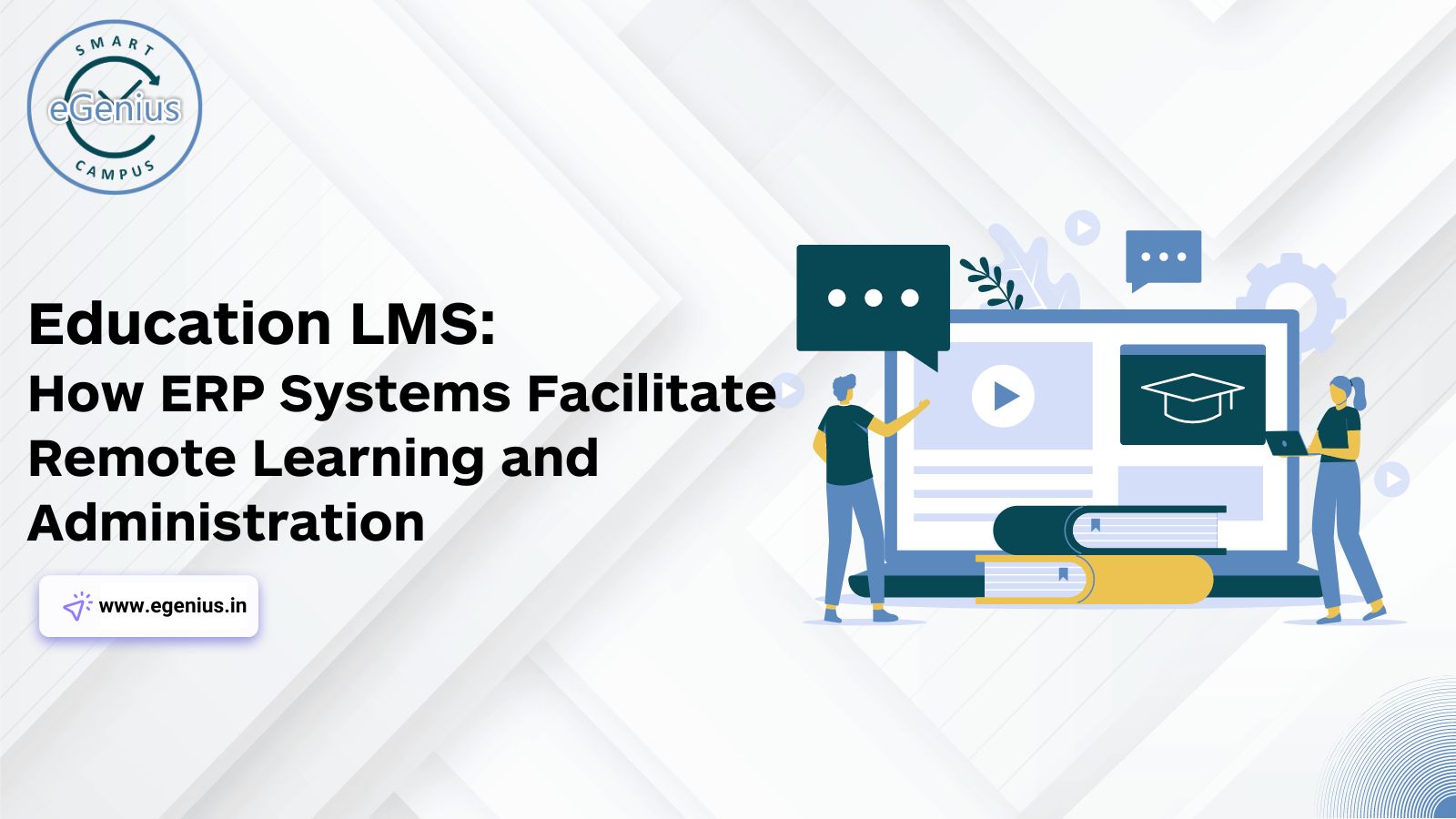Today, tech is changing schools in big ways. Think about joining Enterprise Resource Planning (ERP) systems and Learning Management Systems (LMS). The way ERP systems adapt to this change has taken LMS education to another level. Schools now use tech tools to make things run smoother, help everyone work together better, and make sure every student can connect and learn. It is all about making learning smooth sailing for students and keeping things tidy for teachers.
Table of Contents
- What is an ERP System?
- Integration of ERP Systems in LMS Education
- Benefits of ERP Systems in Remote Learning and Administration
- Improved Accessibility
- Enhanced Collaboration
- Efficient Administration
- Personalized Learning
- Data-Driven Decision Making
- Cost Efficiency
What is an ERP System?
An ERP, short for Enterprise Resource Planning, refers to software tied into one user-friendly system. This system combines different business operations. It covers finance, HR, supply chain, and customer relationships. For schools, ERP systems can handle administrative chores. This way, schools work smoothly and can focus on their main job – education.
Integration of ERP Systems in LMS Education
The integration of ERP systems in LMS education has facilitated the management of educational processes and enhanced the learning experience. This synergy allows for the consolidation of academic, administrative, and financial data into one platform, thereby providing a holistic view of institutional operations. As a result, educational institutions can offer a more cohesive and streamlined experience for students, faculty, and staff.
Benefits of ERP Systems in Remote Learning and Administration
Improved Accessibility
ERP tools make distance learning much easier. Kids and teachers can get books, administrative data, and extra support from any place that has web access. Because of this, learning never stops. It does not matter where they are.
Enhanced Collaboration
ERP systems have boosted teamwork between students and teachers. They offer cool stuff like chat forums, team assignments, and instant responses. This helps create a space for everyone to work together. This is super handy for online learning when meeting in person is tricky.
Efficient Administration
School running’s have gotten smoother with ERP systems. Stuff like signing up students, planning timetables, handling grades, and sorting out financial aid now have an easy button. With less paperwork for staff, schools can better spread around resources. The real winner? Better quality education for all.
Personalized Learning
ERP systems aid in customizing education. They help teachers craft lessons that match each student’s unique needs. How? By using data and tracking how well students are doing. These systems spot where students are struggling and suggest helpful solutions. That way, every student’s learning journey gets shaped just right for them to thrive.
Data-Driven Decision Making
ERP tools make informed choices possible with their strong ability to analyze data. They pick up and study information about how students are doing, how resources are used, and how office jobs are done. This lets leaders in education spot patterns and figure out what needs to get better. Using data this way can help create stronger plans and improvements in education.
Cost Efficiency
ERP systems can cut costs big time for educational institutions. They turn manual work into automatic tasks, which saves money. And they organize everything, so the institutions works better and costs less. Plus, ERP systems can be in the cloud, so institutions do not have to buy pricey machines to run them. Schools save money and can spend it on important stuff. Like books for classes, or helping students more.
The integration of ERP systems in LMS education has been transformative. Improved accessibility, enhanced collaboration, efficient administration, personalized learning data-driven decision making, and cost efficiency are among the many benefits that have been realized. As educational institutions continue to embrace digital solutions, the role of ERP systems in facilitating remote learning and administration will only grow in importance. By leveraging these systems, institutions can ensure that their education LMS remains agile, efficient, and responsive to the needs of their students and staff.
Experience the transformative power of ERP systems with eGenius software. Discover how our comprehensive solution can enhance your education LMS, streamline administrative tasks, and improve remote learning today! Visit our website to learn more and request a demo.















